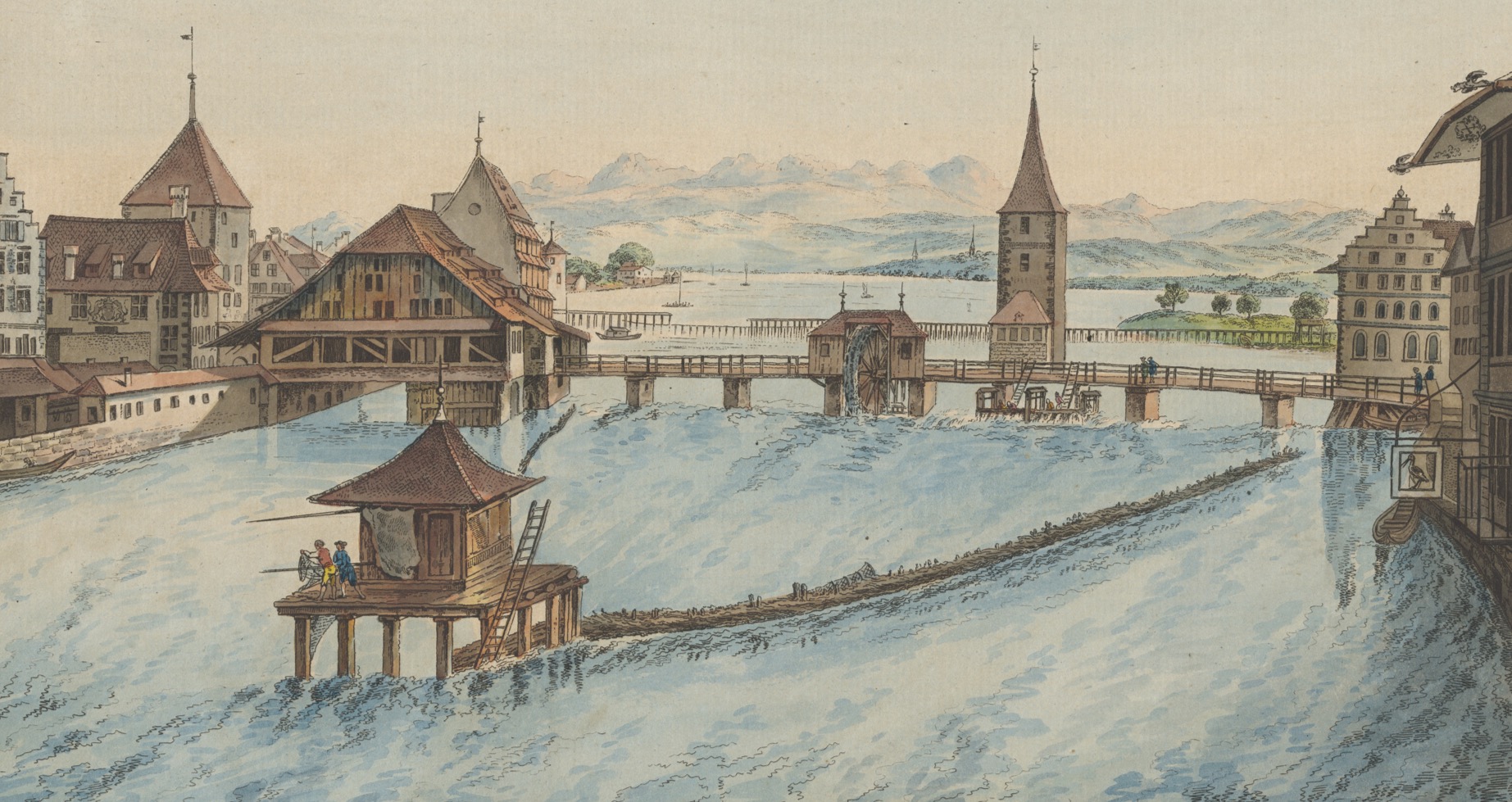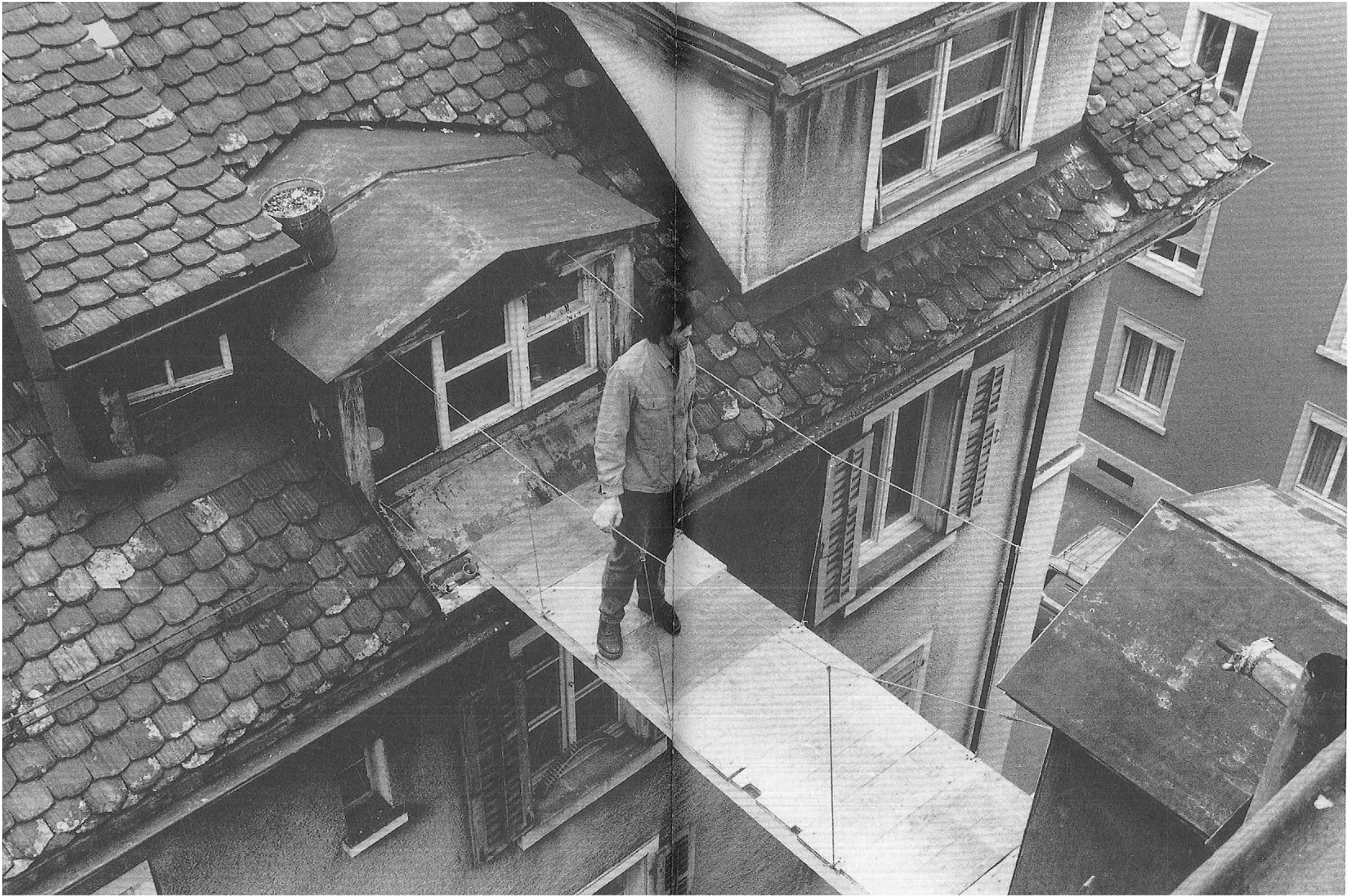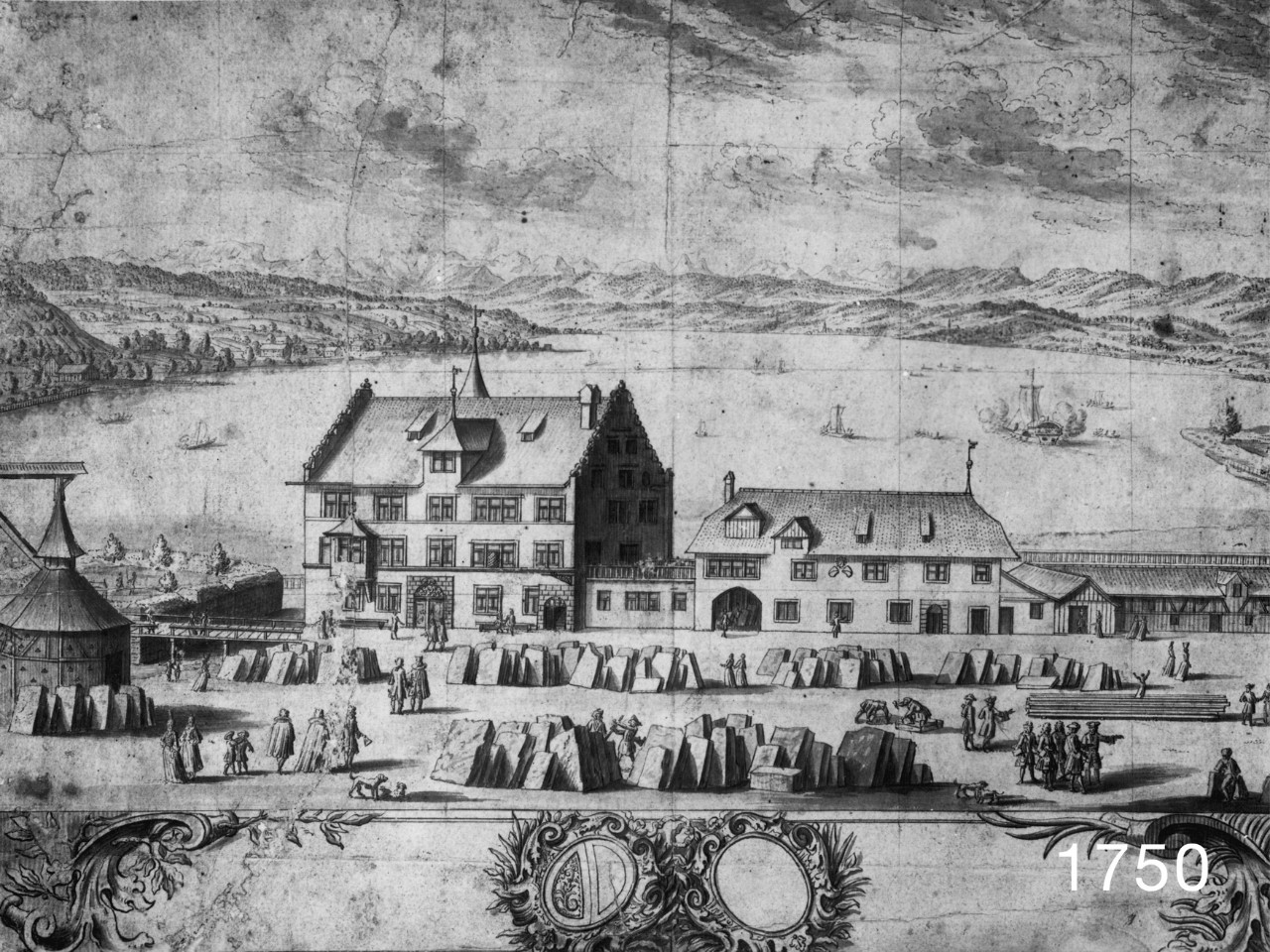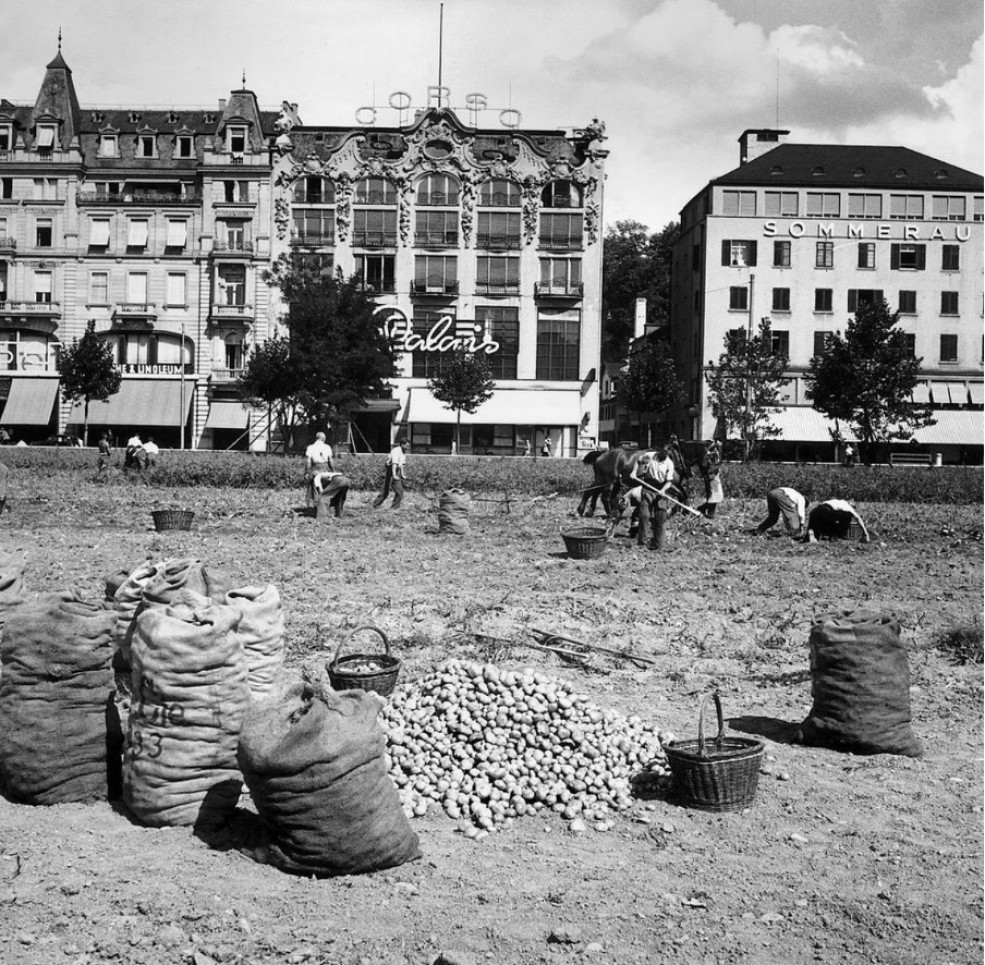Zurich Commons
Cities have always been based on common resources. While designing and constructing the architecture of the city, architects, urban designers, builders, and inhabitants have had to engage with common resources and geographies: inherited common-pool resources (water, nature, air); material common-pool resources (clay, brick, stone, wood); and immaterial common-pool resources (craft, knowledge).
This understanding of the city as being intrinsically related to common resources has gained renewed attention, as neoliberalism replaces ever-shrinking welfare structures and global urbanization is accompanied by rising inequality. It is not only architects and urban designers who are again becoming interested in alternative principles of governing common resources, but also political movements and society at large. Hence, some of these issues – generally labelled ‘the commons’ – have received growing attention in recent decades within the fields of critical urban studies, urban history, urban geography, and the social sciences.
As a continuous series of investigations into the rich history of Zürich’s commons, each semester, the Chair of History and Theory of Urban Design organises a Research Studio that highlights one particular set of commons: water commons, green commons, housing commons, material commons, and so on. Drawing on architectural, urban, typological, environmental, and material perspectives, this historical research aims to unlock an alternative reading of the urban and architectural qualities of the city by demonstrating how common practices affect the development of the city and how common resources enable and structure practices of ‘commoning’.
Hover Image: Zürichsee, © Wikimedia Commons, Roland zh
During the Fall semester of 2020, the Fachsemester focuses on the topic of water within the urban context of Zurich. Water is highly prominent in the city and its everyday operations: the lake and the rivers Limmat and Sihl structure the city and dominate its geography. These waters can be considered as common resources in many ways, with the provision of water for drinking, for irrigation of the land, the generation of power, ways of transportation, and spaces of trade and recreation. Additionally, water networks that are less visible greatly impact the city and its inhabitants. The large number of drinking fountains all over the city show not only the availability of wells in the area, or pipelines underground, but also reflect the easy access to the water supply from the public realm.
During this semester, three instances of water commons in the city of Zürich are investigated:
This includes the system of fountains and the provision of drinking water, the embankments of lakes and rivers and their recreational uses and the productive aspects of water: generation of electrical power, purification of wastewater, irrigation of the fields and fishing
Students explore the historic, urban, topographical, communal, and architectural aspects of these topics. By using archival research, drawing maps, and mapping structures, they investigate the water system, its histories, and its communal aspects.
Tutors: Prof. Dr. Tom Avermaete, Dr. Irina Davidovici, Nicole de Lalouvière, Dr. Cathelijne Nuijsink, Dr. Hans Teerds, Maxime Zaugg
Students: Joel Brandner, Xue Jingfan, Lena Stamm, Leonie Charlotte Wagner, Guan Wen
This Fachsemester took place during the Fall 2020 Semester.

This Fachsemester focuses on the green commons of Zürich: the many forests, pastures, gardens, allotment gardens, parks, fields, and lawns that characterise the city. We explore how green commons are manifested, produced, managed, used, maintained, and appropriated, and elucidate how these green commons offer new perspectives on contemporary challenges, such as climate change, urban food provision, and densification.
The goal of this Fachsemester is twofold. First, we develop an ‘archaeology’ of Zürich’s eco-commons and regard the city’s green elements as the outcome of codes and practices of ‘commoning’ that are systematically analysed. Second, we develop an ‘assemblage’ of Zürich’s eco-commons by scrutinising how they are experienced, practised, and developed in the city. To this end, we analyse the character and role of urban forests, parks, gardens, and allotments as sites for the production of common-pool resources (health and leisure space, energy, food, clean air, etc.).
The result is a ‘retroactive manifesto’ for the city of Zürich, in which the past, present and future roles of green commons in the city are discussed as a more comprehensive project for the city as we know it and as it might evolve.
Tutors: Prof. Dr. Tom Avermaete, Dr. Irina Davidovici, Nicole de Lalouvière, Dr. Cathelijne Nuijsink, Dr. Hans Teerds, Maxime Zaugg
Students: Karina Breeuwer, Rico Muth, Martin Rösch
This Fachsemester took place during the Spring 2021 Semester.

In semester HS21, the Research Studio focused on the housing commons of Zürich. By ‘housing commons’ we mean collectively owned, non-profit forms of housing ownership such as cooperatives and subsidized dwellings: the formats that have built up the backbone of the city’s affordable housing since the early 1900s. We explored how housing commons constitute, present and reproduce themselves; how they have contributed to easing Zurich’s chronic housing shortages in the past, and might continue to do so in the future.
During the semester we identified, defined and analysed these special categories in Zurich’s housing, and how they differ, typologically and iconographically, from speculative and market forms of housing. The aim was to explore how housing commons may be produced, managed, used, maintained, appropriated, and how they manifest themselves in the city. The housing commons were investigated from architectural, spatial, environmental and material perspectives. We explored how common practices and resources have affected the development of the city, and conversely, how the built environment has structured common practices and facilitated access to housing and collective shared spaces and facilities, internally and externally, as common resources. Through these analyses, the research aimed to unlock an alternative reading of the urban and architectural qualities of the built environment of the city, but also a more socially inclusive, environmentally conscious alternative to the housing produced by and maintained within the market.
Tutors: Prof. Dr. Tom Avermaete, Dr. Irina Davidovici, Maxime Zaugg
Students: Luca Can, Roderic Günter, Leandra Graf, Xingyu He, Meret Heeb, Sara Lazarevic
This Fachsemester took place during the Fall 2021 Semester.

In semester FS22, the Research Studio focused on the material commons of Zürich and explored how local material resources influenced the aesthetic, construction and craft cultures of the city. By investigating the material commons using the tools and knowledge of the architect, this studio attempted to answer questions as: What are the material commons and how does Zürich’s material history help us in addressing the social, political and environmental challenges of our time? What leeway do we see for architects and other producers of the city to mobilize Zürich’s material commons to serve the common good?
Whereas most materials take part in the construction of the city by being traded privately in the building economy, during the semester we identified, defined and analysed under the category of the ‘material commons’ those instances of material use that defy this logic of market driven exchange. By investigating, for instance, how material resources are extracted from its natural surroundings and enter the building economy; how the continued engagement with specific materials leads to an accumulation of specific forms of collective expertise, knowledge and craftsmanship; or how end-of-life materials are reimagined to be reused in unforeseen ways, this studio aimed to explore how material commons may be produced, managed, used, maintained, appropriated, and how they manifest themselves in the city.
Based on historical research on Zürich’s cobblestones, care work in the Rote Fabrik’s transformation process, the role of demolition and preservation in managing our building stock, the creation of value in the lifecycle of quarried stone and gravel, and the access to knowledge about timber construction, the students in our Research Studio each outlined a project for the city, imagining a renewed relationship to the materiality that makes up the city.
Tutors: Prof. Dr. Tom Avermaete, Dr. Sebastiaan Loosen, Sanna Kattenbeck, Hamish Lonergan, Maxime Zaugg
Students: Arno Bruderer, Sereina Fritsche, Elena Hofbeck, Simona Lazarova, Nathalie Reiz
This Fachsemester took place during the Spring 2022 Semester.

In the Autumn Semester 2022, our Research Studio focused on Zurich’s ‘Land Commons’. These collective forms of land use are associated with a variety of participatory practices and have served numerous aims, from food production to housing, commerce and recreation. Relying on the tools and knowledge of the architect, this studio investigated their role in the city and attempted to answer the following questions: what are Zurich’s land commons? How does the history of Zurich’s land use help to understand the social, political and ecological challenges of contemporary urban design? What scope do we see for architects and other city makers to (re)activate Zurich’s land commons for the common good?
The history of Zurich’s land commons points to a collective form of land use associated with a variety of participatory practices, communal social relations, as well as conflict negotiations. Apart from the provision of ground for food production and agriculture, land was increasingly managed as a common resource to secure good housing, commerce and recreation. And although the specific historical systems of the Zelge and Allmend no longer exists in the contemporary city of Zurich, there are numerous examples of alternative forms of communal land use. The actors involved in these commoning practices may have changed, but the highly complex economic and social system of cooperative land use can still be discovered in the city today: in its urban open spaces, collectively-appropriated land, or entire housing projects.
In the Research Studio, an analysis of the land fillings and activities along the lakeshore of Zurich raised the question of how Lake Zurich can be reclaimed as a former ‘Stadtallmend’. And whilst looking at the historical transformation of the Allmend Brunau into today’s Green City in Manegg, one can wonder whether this isn’t a tale of a ‘Lost Common’. Based on these cases, the students outlined a project for the city, aiming to unlock the hidden potential of Zurich’s Land Commons.
Tutors: Prof. Dr. Tom Avermaete, Dr. Sebastiaan Loosen, Sanna Kattenbeck, Nicole de Lalouvière, Niloofar Rasooli
Students: Enrico Berta, Yeshe Gao
This Fachsemester took place during the Fall 2022 Semester.

| Commons Register | Link |